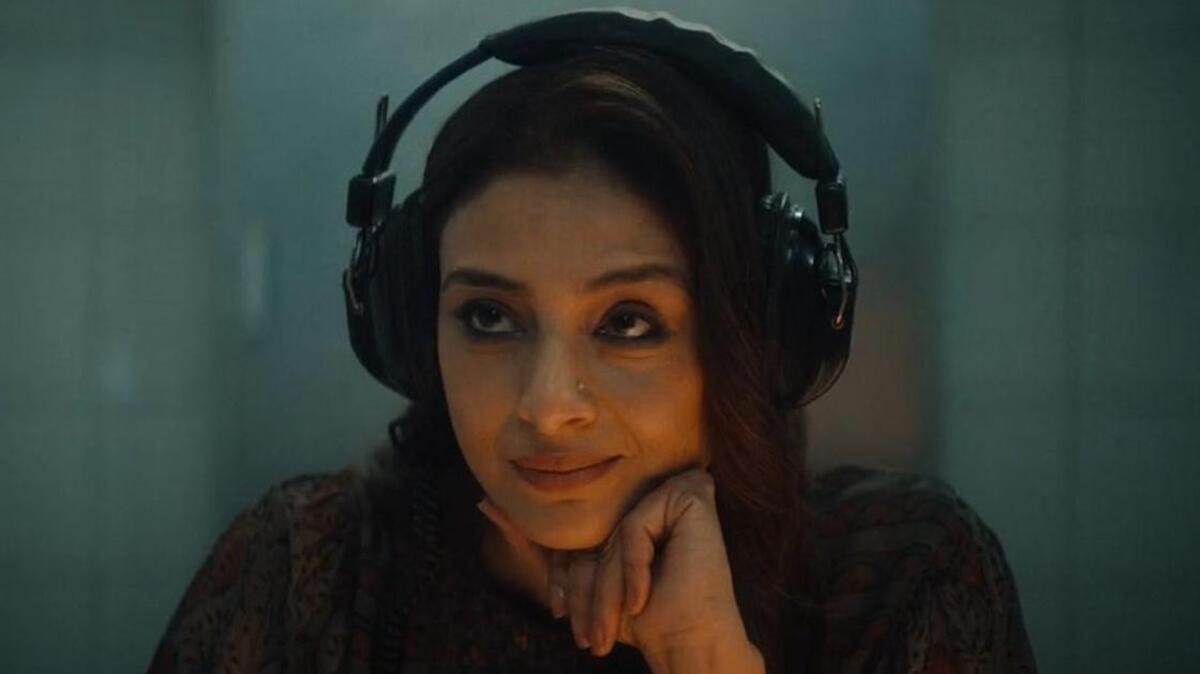In the realm of Indian cinema, there exists a precious few filmmakers who steadfastly resist the commodification of art into mere content. Vishal Bhardwaj, an auteur with a multifaceted artistic arsenal at his disposal, once again endeavors to provide an immersive experience through his latest venture, “Khufiya.” However, this cinematic exploration, in its quest to capture the essence of espionage, occasionally loses its grasp on the narrative. It mesmerizes with its evocative ambiance and captivating melodies but ultimately falters in sustaining its enchantment till the conclusion.
Challenges of Translating Espionage to the Silver Screen
The adaptation of spy novels to the cinematic realm has long been a challenge, often running the risk of leaving audiences with the sentiment that nothing substantial is transpiring on screen. Those familiar with Amar Bhushan’s “Escape To Nowhere,” the literary foundation for “Khufiya,” would concur that the fictionalized retelling of the saga of an Indian intelligence operative who, while under constant surveillance, inexplicably vanished, possibly with clandestine American support, is an intricate narrative to transpose to film.
The source material’s absence of a third act, which would typically elucidate the Indian response to this profound embarrassment, presents a significant cinematic challenge. Vishal Bhardwaj, alongside co-writer Rohan Narula, navigates these complexities with astute creativity. They ingeniously manipulate character genders, introduce new personas, and infuse zest into otherwise dry segments to cater to the Indian audience’s penchant for romanticizing intelligence operations, particularly when they culminate in the apprehension of wrongdoers, at least within the realm of cinema.
A Glimpse into Geopolitical Intrigue in ‘Khufiya’
Set during a period when certain extremist elements in Bangladesh allegedly succumbed to the intrigues of Pakistan’s ISI, aiming to establish a terror network along India’s eastern border, the film delves into the meticulous orchestration of a team of Indian intelligence agents, led by the enigmatic Krishna Mehra, portrayed by the talented Tabu. Their mission involves collaborating with democratic forces in Dhaka to destabilize the then-rigid Bangladeshi government, aided by a local agent played by Bangladeshi actor Azmeri Haque Badhon.
The operation, however, appears to be compromised by the actions of Ravi, an Indian intelligence officer portrayed by Ali Fazal, ostensibly working for the interests of the United States. Their need to tread lightly in dealing with Pakistan, as part of the larger strategic game unfolding in Afghanistan, complicates the scenario. Ravi is already under close scrutiny, but Krishna’s superior, Jeevnathan, played by Ashish Vidyarthi, is not content with merely apprehending the pawn; he seeks to unmask the puppeteer behind the scenes. The pivotal question arises: Will the political leadership dare to confront a superpower evidently eager to forge a strategic partnership with India?
Emerging at a juncture when India finds itself embroiled in a diplomatic standoff with Canada, rekindling scrutiny of American intelligence agencies, “Khufiya” offers passages that are bound to send shivers down the spines of those intrigued by geopolitics. However, “Khufiya” transcends being a mere cat-and-mouse game, confined to the corridors of power in South Block and the labyrinthine streets of Delhi and Dhaka, as is customary in Vishal Bhardwaj’s oeuvre.
The title itself, signifying “secret” in Urdu, serves as a symbolic embodiment not solely of the painstaking efforts intelligence agencies invest in surveilling their targets, but also of the concealed truths harbored in the recesses of human hearts and the veils we often employ to conceal our authentic selves.
The Emotional Tapestry of ‘Khufiya’
In the tapestry of “Khufiya,” Vishal Bhardwaj masterfully weaves a spectrum of human emotions. The film portrays the tension and anxiety that permeate the world of espionage, where trust is a precious commodity, and betrayal lurks around every corner. As the narrative unfolds, it delves into the emotional toll that the lives of intelligence agents exact, where personal sacrifices and moral dilemmas are a constant companion.
The character dynamics in the film are a canvas of intricate relationships, where loyalty and treachery coexist in a delicate balance. The characters, under the burden of their covert identities, grapple with their inner conflicts, giving rise to a palpable sense of intrigue and vulnerability. Krishna Mehra, as played by Tabu, epitomizes the enigmatic and emotionally complex spy, navigating a world where the boundaries between right and wrong blur into shades of gray.
Final Words: ‘Khufiya’ as an Exploration of Human Complexity
“Khufiya” transcends the boundaries of a conventional spy thriller by immersing itself in the intricacies of human emotions and moral dilemmas. It takes us on a journey through the labyrinthine world of espionage, where secrets and loyalties intertwine, and the cost of hidden truths weighs heavily on the human soul.
Vishal Bhardwaj’s artistry shines through as he captures the nuanced spectrum of human emotions, making “Khufiya” a compelling cinematic exploration that resonates long after the credits roll. While the film may occasionally falter in its narrative grip, it excels in its portrayal of the emotional intricacies that define the clandestine world of intelligence operations. “Khufiya” invites audiences to unravel not just the web of espionage but the layers of the human heart, where secrets and vulnerabilities coexist in enigmatic harmony.











